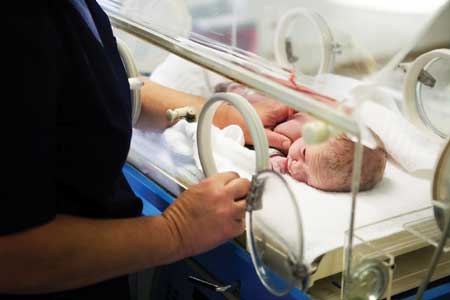A Call for More Research
by Teddi Fine
Working tired can be a hazardous business. Research tells us that working shifts of any kind of seventeen hours or more can be as dangerous as working when drunk or drugged. To curb the potential for dangerous consequences of working while sleep deprived, pilots and commercial drivers are limited in the number of hours they can work, and medical residents in the consecutive hours they may be on call in the hospital. However, neonatal nurse practitioners (NNPs) are not subject to similar shift limits.
NNPs make up a small proportion of all nurses; however, they are on the front line of twenty-four-hour care for sick newborns. They also often care for acutely ill infants who require minute-to-minute care and rapid, accurate decision making. Writing in Advances in Neonatal Care (June 2011), doctoral candidate Donna LoSasso, MSN, RN, asks “Are We Really Doing What is Best for Our Tiny Patients?” in her article of the same title. She observes that while “good evidence about shift lengths is needed to make good recommendations,” that evidence doesn’t yet exist for NNPs.
Existing work-shift data for flight nurses has found that on-duty rest time can help reduce or even eliminate a nurse’s sleep deficit—and the potential for diagnostic or treatment errors. Based on her exploration of these and other data for healthcare professionals and others, LoSasso observes that shift intensity and the acuity of patient needs may be as much a factor in maintaining patient safety and quality of care as is shift length itself. She urges more research, coupled with ongoing professional education about issues surrounding shiftwork. However, she cautions that “given the broad variation in the intensity of shiftwork based on facility size, staffing patterns, and patients served, it may be impractical to set specific shift standards for NNPs.”